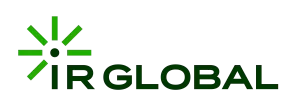- within Energy and Natural Resources topic(s)
- in United Kingdom
- with readers working within the Business & Consumer Services industries
- with readers working within the Construction & Engineering industries
The Democratic Republic of Congo (DRC), home to some of the world's richest deposits of cobalt, copper, and other critical minerals, enacted major revisions to its Mining Code in March 2018. These reforms marked a significant policy shift aimed at increasing the state's share of mineral wealth, improving governance, and reshaping the regulatory framework for both domestic and international investors.
Fast-forward to 2025, and the DRC continues to refine its approach. Recent developments - including a temporary cobalt export suspension and new rules separating artisanal from industrial production - highlight the government's intent to exert more control over the sector and ensure greater benefit for its people.
Increased Royalties and Taxes
The 2018 Code introduced substantial increases in royalty rates:
- Strategic minerals such as cobalt and coltan are now taxed at 10%, up from 2%-3.5%.
- Base metals like copper and tin carry a 3.5% royalty.
- Precious metals are subject to a 3.5%-5% royalty depending on market conditions.
These changes are intended to ensure that the DRC captures a fairer share of the profits generated by soaring global demand for its minerals.
Enhanced State Participation
The Congolese State's free carry interest in mining projects was increased from 5% to 10%, and the government retains the right to negotiate additional equity stakes in certain strategic projects.
This ensures that the state has a more direct role and return from mining ventures that utilize national resources.
Stability Clause Reduction
One of the most impactful changes for foreign investors is the reduction of the fiscal and legal stability clause from 10 years to 5 years. This limits the period during which mining companies are shielded from changes in legislation, creating a more dynamic (albeit less predictable) investment environment.
Strategic Minerals Classification
The new Code introduced a "strategic minerals" category, granting the government additional powers to impose higher taxes and tighter controls over extraction, trade, and exports. In 2018, in accordance with Article 9 litera of the Mining Code, the Prime Minister issued Decree No. 18/042 declaring cobalt, germanium, and coltan as strategic minerals.
Minerals deemed essential for technological innovation and the energy transition, such as cobalt, fall under this classification, reflecting the DRC's desire to strengthen its bargaining position globally.
Transparency and Community Development Requirements
The revised Code includes several provisions aimed at promoting sustainable and transparent mining:
- Mandatory disclosure of contracts and revenue payments.
- Obligatory community development plans financed by mining companies.
- Increased local content rules, requiring the hiring of Congolese workers and sourcing from local businesses.
These measures aim to address historical concerns about environmental damage, labor practices, and equitable economic benefits.
February 2025 Developments: Export Suspension and Cobalt Reform
In February 2025, the DRC government enacted two major regulatory interventions:
- A four-month suspension of cobalt exports was announced to address oversupply and stabilize global prices. This move triggered a rebound in cobalt values, which had fallen to a nine-year low.
- New regulations strictly separating artisanal and industrial cobalt production were also implemented. The government now prohibits the mixing of unregulated artisanal ores with industrial outputs and bans the export of any product derived from such practices.
These steps reinforce the state's commitment to improving supply chain traceability, safety, and social accountability - especially in sectors where child labor and unsafe practices have drawn global scrutiny.
What This Means for Investors
The revised Mining Code and new enforcement actions demonstrate the DRC's continued evolution toward more assertive resource governance. While the regulatory environment has become more complex, it also offers new opportunities for compliant, sustainable, and locally integrated operations.
Amani Law Firm is uniquely positioned to help investors adapt to these legal shifts. Our in-depth understanding of Congolese mining law and regulatory processes enables clients to manage risk, structure deals effectively, and remain fully compliant with the law.
The DRC's mining landscape is evolving, not only through legislative reform but also through assertive policy action. With rich mineral reserves and growing global demand, the country is positioning itself as both a critical supplier and a more proactive steward of its resources.
The content of this article is intended to provide a general guide to the subject matter. Specialist advice should be sought about your specific circumstances.


